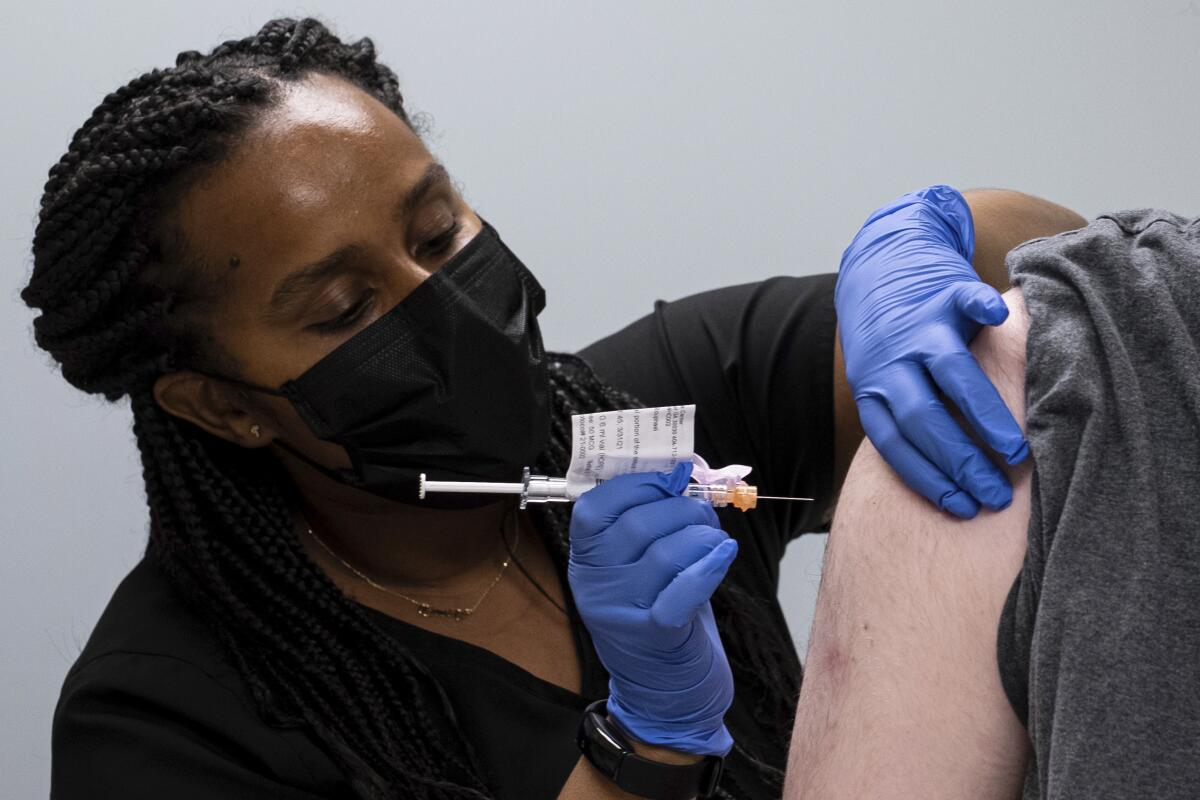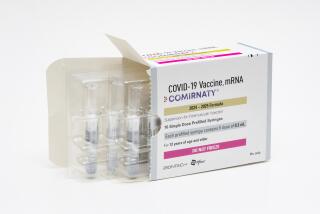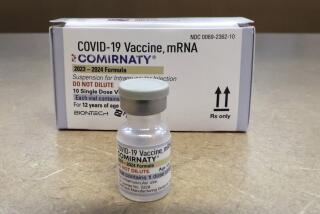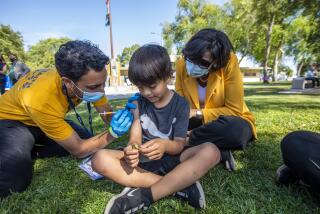Four things to know about getting the COVID-19 booster shot

- Share via
WASHINGTON — The Biden administration announced Wednesday that it plans to offer booster shots starting next month to many people who have been fully inoculated against COVID-19.
Here we answer four frequent questions concerning such booster shots:
Why do we need one?
The booster is intended to bolster the vaccine’s effectiveness, particularly as the Delta variant spreads across the country. Government health officials said in a statement Wednesday that the vaccine’s protection against mild and moderate disease is diminishing over time. They are also concerned that vaccines could also become less effective at preventing “severe disease, hospitalization, and death,” particularly among those who are at higher risk of illness or who were inoculated in the early phases of the vaccine rollout.
“We conclude that a booster shot will be needed to maximize vaccine-induced protection and prolong its durability,” the statement said.
The spread of the Delta variant has contributed to breakthrough infections, especially among vaccinated people with weakened immune systems and those who got their vaccines earlier in the pandemic.
When can we get the booster shot?
The Biden administration plans to offer the booster shots starting the week of Sept. 20 to people who have received Pfizer-BioNTech and Moderna vaccines when they first became available. The first people to be offered boosters will most likely be healthcare workers and nursing home residents because they received shots in the first months of the vaccine drive.
About 5 million people will be eligible to get the boosters by late September, health officials said. Final distribution of booster shots will depend on a Food and Drug Administration study of the effectiveness and safety of boosters for Pfizer and Moderna vaccines. Approval is expected.
Health officials said the best time to get such a booster is about eight months after receiving the second doses of the Pfizer and Moderna vaccines. They determined that was the best interval from studies that assessed the vaccines’ effectiveness over time.
A study last year of four coronaviruses, which cause the common cold, determined that immunity rarely lasted longer than a year; in some cases, reinfection occurred after just six months.
What about those who received the Johnson & Johnson shot?
The Biden administration said Wednesday that it expects to offer boosters to those who received the one-shot Johnson & Johnson vaccine, but health officials needed more data before finalizing a rollout plan.
If I got the Pfizer vaccine, can I get a Moderna booster?
The Biden administration did not address that question in its statement, but the Centers for Disease Control and Prevention has warned that the Moderna and Pfizer vaccines are not interchangeable. In “exceptional situations” where the same vaccine is not available, however, people who received the first dose of one may be administered a second shot of the other, the CDC said on its website.
Dr. Francis Collins, the director of the National Institutes of Health, told conservative radio host Hugh Hewitt on Tuesday that it was best to stick with the same vaccine for the booster.
“Ideally, you want to stick with the same one because that’s where we have the data,” Collins said. “But, if for some reason you don’t have access to it, well, then get the other one. Again, I’d feel more comfortable as a scientist fixing our plans on real data, and that means sticking to the same kind of vaccine that you got to begin with.”







